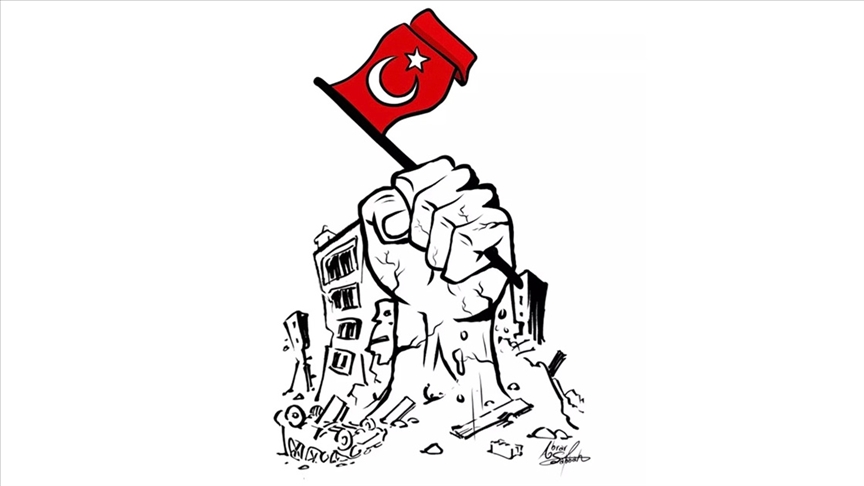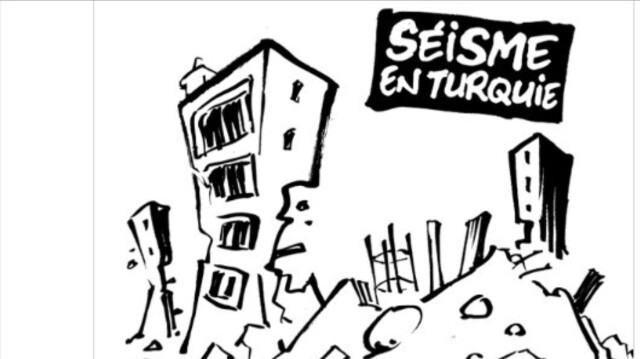During the Era of Happiness the celebrations would start with the ‘Eid prayer which was held in an area called the musalla (place of prayer); women and young girls joined the ‘Eid prayer.
After emigrating to Medina, Prophet Muhammad (pbuh), believing that there was a need for legitimate entertainment, gave the people the glad tidings that "Almighty Allah has granted you two ...blessed ‘Eids ..." (Abu Dawud, "Salat", 245; Nesai, "Idayn", 1). He informed the people that these two ‘Eids were the ‘Eid ul Fitr (the holiday at the end of Ramadan) and the ‘Eid al Adha. Muslims should try to spend these days happily, visiting one another, celebrating the ‘Eid together, eating together and enjoying themselves in legitimate ways. In another hadith, Prophet Muhammad commanded: "The day before the ‘Eid al Adha, the first day and the following days are holidays for Muslims. These are days on which we eat and drink." (Abu Dawun, "Sawm", 50; Tirmidhi, "Sawm", 59)
The Prophet announced that the days of ‘Eid were days of cooperation and solidarity between Muslims, days of joy and days on which they could laugh and enjoy themselves. These holidays, from a religious and a social aspect, are not only a means for Muslims coming together they also provide a means to help alleviate the needs of the poor. Prophet Muhammad wanted Muslims to share their joys and sorrows, commanding that there be mutual assistance among Muslims at all times, not only on holidays. In order to provide social solidarity, those who are financially able to should give an amount of money in charity for every member of the family during the ‘Eid ul Fitr; during the ‘Eid al Adha they are commanded to sacrifice a sheep, cow or camel. Moreover, it is the Sunnah of Prophet Muhammad to perform the tashrik (uttering Allahu akbar) after the compulsory prayer on ‘Eid al-Adha.
During the Era of Happiness the celebrations would start with the ‘Eid prayer which was held in an area called the musalla (place of prayer); women and young girls joined the ‘Eid prayer. The first ‘Eid prayer was prayed in the musallain the second year after the Hijrah at the ‘Eid al Adha, which falls on the tenth day of Dhul-Hijjah. Prophet Muhammad would lead the prayer in the musalla, which was a little distance from the Prophet's Masjid, if the weather was not rainy. The sacrificial animals were slaughtered here as well. Before going to the ‘Eid prayer, the Muslims would bathe and put on their best clothing. Prophet Muhammad would take one road going to the musalla and another on his return.
Before leaving for ‘Eid ul Fitr, Prophet Muhammad would eat a few dates. The fact that he did this led to the Sunnah of eating dates, which in turn led to the tradition of offering sweets at the holidays. For the ‘Eid al Adha Prophet Muhammad would eat nothing, but wait until he was able to eat the meat from the sacrificial animal. When he came to the area where the ‘Eid prayer was to be prayed, the Prophet would perform two rakahs, and then he would stand up and turn to the congregation and read the sermon, offering advice. Then he would go to where the women were in the congregation and offer advice to them. Prophet Muhammad started all sermons by thanking Allah. In addition he would utter "Allahuakbar" many times.
In the time of Prophet Muhammad women and children would participate in the ‘Eid prayer. Allah's Messenger would pay special attention to children, greeting them, stroking their heads, joking with them and giving them presents.
Women also participated in the ‘Eid prayers. Even if they could not pray they would still come to the musalla, and take their places in the back rows, listening to the Prophet's sermon and participating in the prayers. They hoped to gain from the blessings of the ‘Eid day and to be purified of their sins. In the time of Prophet Muhammad women and children would participate in the ‘Eid prayer. Allah's Messenger would pay special attention to children, greeting them, stroking their heads, joking with them and giving them presents. Prophet Muhammad (pbuh) was always the helper, protector and source of mercy for children, not only at the ‘Eids, but at all times.
Prophet Muhammad, who always spent time with his friends, would visit their houses at the ‘Eid, accepting their hospitality. He would also receive guests, feeding and entertaining them. Prophet Muhammad did not approve of bad feelings among Muslims and said "It is not permissible for a Muslim to be angry with another Muslim for more than three days" (Bukhari, Adab, 57; Muslim, Birr, 23-25). Allah's Messenger put great importance on visiting the ill; he stated that this was a duty for Muslims. In addition, Prophet Muhammad wanted Muslims to visit graves, praying for the deceased and think about death. In the era of Prophet Muhammad, people congratulated one another on the holiday. It is reported that the first Muslims congratulated one another on the ‘Eid with the prayer, "May Allah accept this from us and from you" (Bukhari, II/2-12); this was most likely inspired by Prophet Muhammad saying "Allah, accept this from Muhammad, from Muhammad's family and from Muhammad's community!"(Muslim, "Adahi", 19).
Prophet Muhammad, who announced that ‘Eids were days of peace, happiness and joy, desired that those days be celebrated with many people and great joy. It is known that he disapproved of Omar's trying to prevent the spear and shield games that a group of Ethiopians were performing on the dirt floor of the Masjid-i Nabawi, which he watched with his wife Aisha. Moreover, he allowed Aisha's slaves to play drums. However, he did not allow traditions or celebrations based on superstitions or the polytheistic practices from the Age of Ignorance.










No comments:
Post a Comment